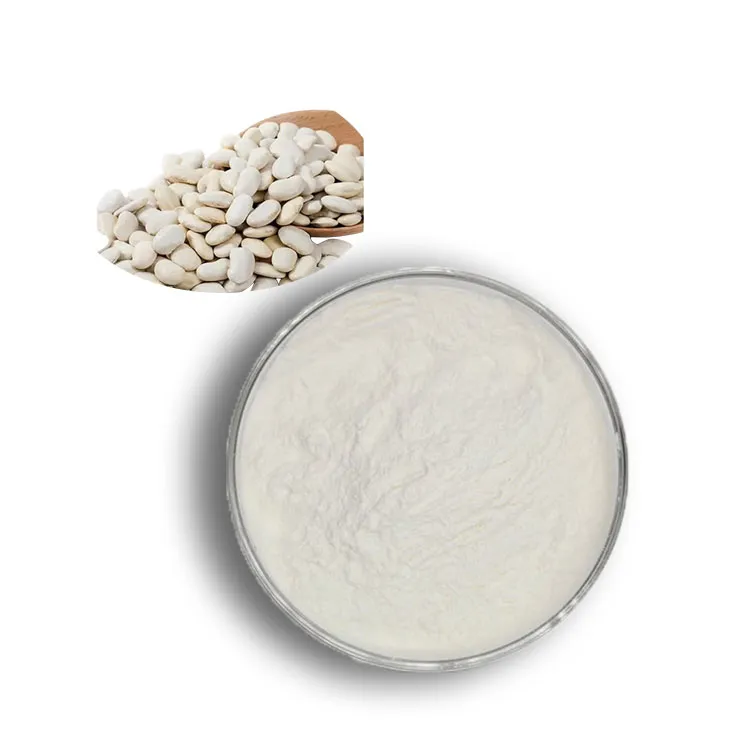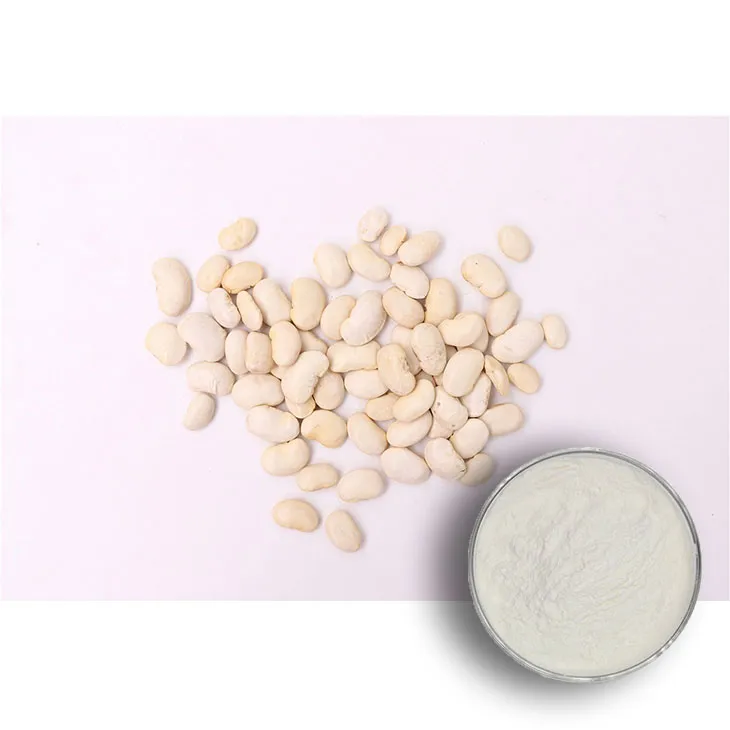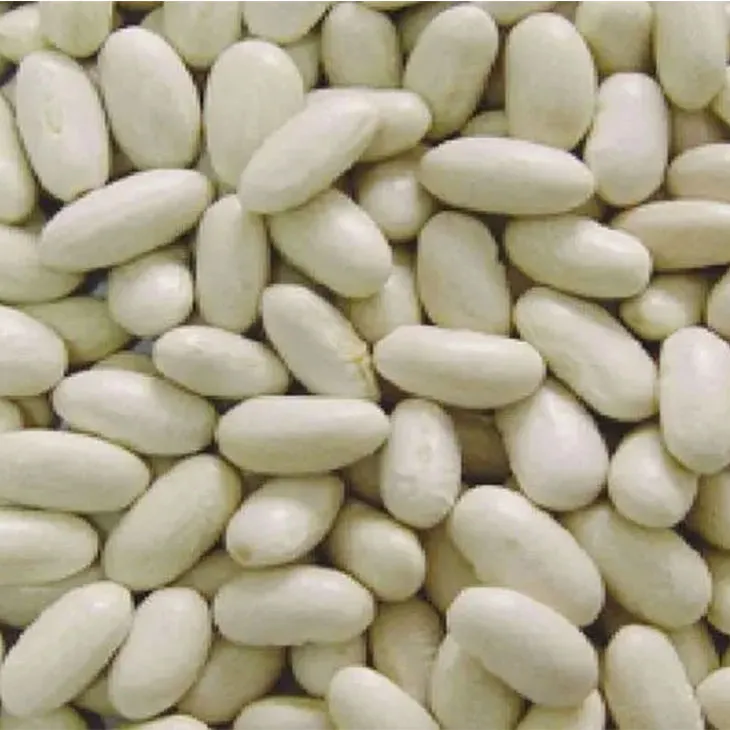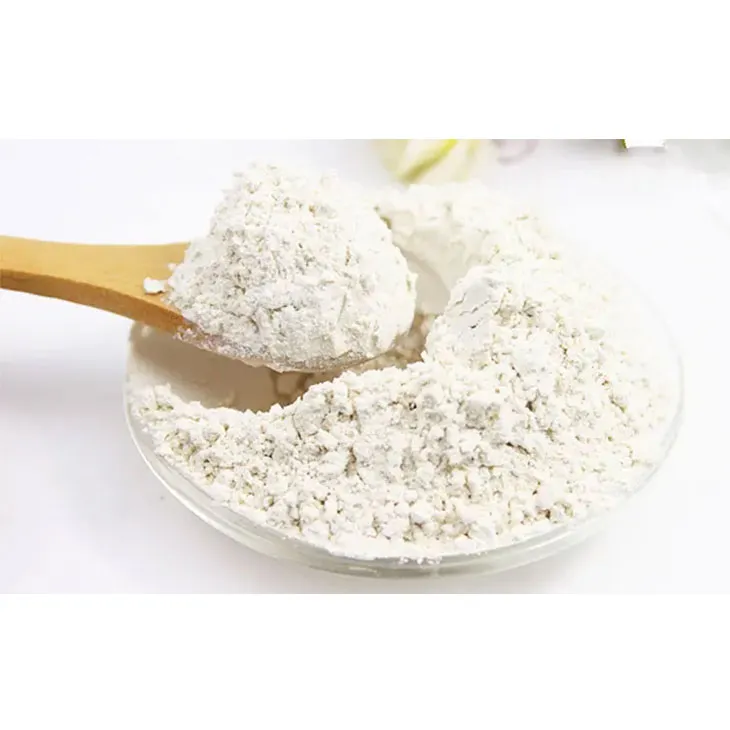- 0086-571-85302990
- sales@greenskybio.com
The Benefits of Kidney Bean Extract: An Impressive Extract on the Kitchen Table.
2024-11-11

1. Introduction to Kidney Bean Extract
Kidney Bean Extract has been gaining increasing attention in recent years due to its numerous health - promoting properties. Kidney beans, also known as Phaseolus vulgaris, are a common staple in many kitchens around the world. The extract obtained from these beans is a concentrated source of various beneficial compounds. Rich in nutrients such as proteins, fiber, vitamins, and minerals, Kidney Bean Extract offers more than just basic nutrition. It contains bioactive components that can have a significant impact on human health.

2. Nutritional Composition of Kidney Bean Extract
2.1 Proteins
Kidney bean extract is a good source of plant - based proteins. Proteins are essential for building and repairing tissues in the body, including muscles, bones, and skin. They also play a crucial role in the production of enzymes, hormones, and antibodies. For vegetarians and vegans, kidney bean extract can be an important addition to their diet to meet their protein requirements.2.2 Fiber
Fiber is another significant component of kidney bean extract. There are two types of fiber - soluble and insoluble. Soluble fiber can help lower cholesterol levels by binding to bile acids in the digestive tract and preventing their re - absorption. Insoluble fiber adds bulk to the stool, promoting regular bowel movements and preventing constipation. High - fiber diets have also been associated with a reduced risk of certain chronic diseases, such as heart disease, diabetes, and some types of cancer.2.3 Vitamins and Minerals
Kidney bean extract contains various vitamins and minerals. For example, it is a source of vitamin K, which is important for blood clotting and bone health. It also contains minerals like iron, which is essential for transporting oxygen in the blood, and magnesium, which is involved in many biochemical reactions in the body, including muscle and nerve function.
3. Health Benefits of Kidney Bean Extract
3.1 Blood Sugar Regulation
One of the most notable benefits of kidney bean extract is its potential role in blood sugar regulation. Alpha - amylase inhibitors are present in the extract. These inhibitors can slow down the digestion of carbohydrates, preventing a rapid spike in blood sugar levels after a meal. This property makes kidney bean extract potentially useful for individuals with diabetes or those at risk of developing diabetes. By helping to control blood sugar levels, it may also reduce the risk of associated complications, such as nerve damage, kidney disease, and eye problems.3.2 Antioxidant Properties
Kidney bean extract is rich in antioxidants. Antioxidants are substances that can neutralize free radicals in the body. Free radicals are unstable molecules that can cause oxidative stress, which is linked to various health problems, including aging, cancer, and heart disease. The antioxidants in kidney bean extract, such as phenolic compounds and flavonoids, can scavenge free radicals and protect cells from damage. This antioxidant activity can contribute to overall health and well - being.3.3 Weight Management
The fiber content in kidney bean extract can play a role in weight management. High - fiber foods tend to be more filling, which can help reduce overall calorie intake. Additionally, the effect of alpha - amylase inhibitors on carbohydrate digestion may also contribute to weight loss. By slowing down the breakdown of carbohydrates, fewer calories are absorbed from them, potentially leading to a reduction in body weight over time.3.4 Heart Health
Several factors related to kidney bean extract contribute to heart health. As mentioned earlier, the soluble fiber can help lower cholesterol levels. Lower cholesterol levels are associated with a reduced risk of heart disease. The antioxidant properties of the extract may also protect the heart by reducing oxidative stress on the blood vessels and the heart muscle itself. Moreover, the potassium content in kidney bean extract can help regulate blood pressure, another important factor in maintaining heart health.
4. How to Incorporate Kidney Bean Extract into Your Diet
4.1 As a Food Additive
Kidney bean extract can be used as a food additive in various ways. It can be added to baked goods, such as bread and muffins, to increase their nutritional value. In smoothies, it can be blended with fruits and vegetables to provide an extra boost of nutrients. It can also be used in the preparation of sauces and dressings, adding both flavor and health benefits.4.2 In Beverages
You can incorporate kidney bean extract into your beverages. For example, it can be added to herbal teas or coffee substitutes. This not only enhances the taste but also provides the health benefits associated with the extract. Some companies are also producing ready - to - drink beverages that contain kidney bean extract for those who prefer a convenient option.4.3 In Cooking
When cooking, kidney bean extract can be used in a similar way to other extracts or seasonings. It can be added to soups, stews, and casseroles. It pairs well with a variety of ingredients, such as tomatoes, onions, and garlic. By using kidney bean extract in cooking, you can easily introduce its health - promoting properties into your daily meals.
5. Precautions and Considerations
While kidney bean extract offers many health benefits, there are some precautions to keep in mind.
- Some people may be allergic to kidney beans or components in the extract. If you have a known allergy to legumes, it is important to avoid kidney bean extract.
- Excessive consumption of kidney bean extract may lead to digestive discomfort, such as bloating, gas, or diarrhea. It is recommended to start with small amounts and gradually increase the intake to assess your tolerance.
- If you are taking medications, especially for diabetes or blood pressure, it is advisable to consult your doctor before adding kidney bean extract to your diet. There may be potential interactions between the extract and the medications.
6. Conclusion
Kidney bean extract is a remarkable ingredient that can offer a wide range of health benefits. Its rich nutritional composition and bioactive compounds make it a valuable addition to a healthy diet. From blood sugar regulation to antioxidant protection and weight management, this extract has the potential to transform your well - being. By incorporating kidney bean extract into your diet in various ways, you can take advantage of its many benefits while enjoying delicious and nutritious meals. However, it is important to be aware of the precautions and consult a healthcare professional if needed. With proper use, kidney bean extract can be a wonderful addition to your kitchen table and your overall health.
FAQ:
What are the main nutrients in kidney bean extract?
Kidney bean extract is rich in various nutrients. It contains proteins which are essential for building and repairing body tissues. It also has dietary fiber that aids in digestion and can help maintain a healthy digestive system. Additionally, it may contain vitamins such as vitamin C which is important for the immune system, and minerals like potassium which is crucial for heart and muscle function.
How does kidney bean extract help in blood sugar regulation?
Kidney bean extract may play a role in blood sugar regulation through several mechanisms. Some components in the extract might slow down the digestion and absorption of carbohydrates. This can prevent rapid spikes in blood sugar levels after a meal. It may also enhance the body's sensitivity to insulin, which is the hormone responsible for regulating blood sugar, allowing cells to take up glucose more effectively.
What are the antioxidant properties of kidney bean extract?
The antioxidant properties of kidney bean extract are due to the presence of certain bioactive compounds. These compounds can neutralize free radicals in the body. Free radicals are unstable molecules that can cause damage to cells and DNA, leading to various health problems such as aging and chronic diseases. By scavenging these free radicals, the antioxidant in kidney bean extract helps protect the body's cells and promote overall health.
Can kidney bean extract be used as a food additive?
Yes, kidney bean extract can be used as a food additive. It can add flavor, color, and nutritional value to various food products. For example, it can be used in baked goods, soups, and sauces. However, when used as a food additive, it should be used in accordance with food safety regulations to ensure its proper use and safety.
How can kidney bean extract transform our well - being?
Kidney bean extract can transform our well - being in multiple ways. As mentioned, it can help regulate blood sugar levels, which is beneficial for people with diabetes or those at risk of developing diabetes. Its antioxidant properties protect our cells from damage, potentially reducing the risk of chronic diseases. The nutrients in it also support overall health, such as the fiber for digestive health and proteins for muscle and tissue repair.
Related literature
- The Nutritional Composition of Kidney Bean Extract"
- "Kidney Bean Extract and Blood Sugar Control: A Review"
- "Antioxidant Compounds in Kidney Bean Extract"
- ▶ Hesperidin
- ▶ Citrus Bioflavonoids
- ▶ Plant Extract
- ▶ lycopene
- ▶ Diosmin
- ▶ Grape seed extract
- ▶ Sea buckthorn Juice Powder
- ▶ Fruit Juice Powder
- ▶ Hops Extract
- ▶ Artichoke Extract
- ▶ Mushroom extract
- ▶ Astaxanthin
- ▶ Green Tea Extract
- ▶ Curcumin
- ▶ Horse Chestnut Extract
- ▶ Other Product
- ▶ Boswellia Serrata Extract
- ▶ Resveratrol
- ▶ Marigold Extract
- ▶ Grape Leaf Extract
- ▶ New Product
- ▶ Aminolevulinic acid
- ▶ Cranberry Extract
- ▶ Red Yeast Rice
- ▶ Red Wine Extract
-
Kupilu Extract
2024-11-11
-
Sea buckthorn oil
2024-11-11
-
Genistein
2024-11-11
-
Senna Leaf Extract
2024-11-11
-
Garcinia Cambogia Extract
2024-11-11
-
Cassia Seed Extract
2024-11-11
-
Avocado Extract Powder
2024-11-11
-
Bitter Melon Extract
2024-11-11
-
Cocoa Extract
2024-11-11
-
Europen Bilberry Extract
2024-11-11





















